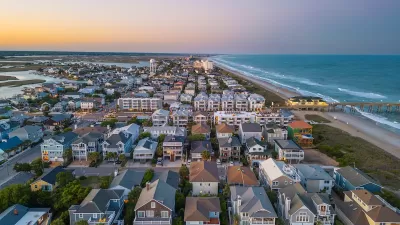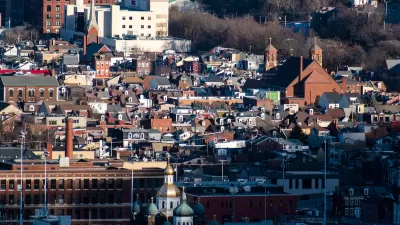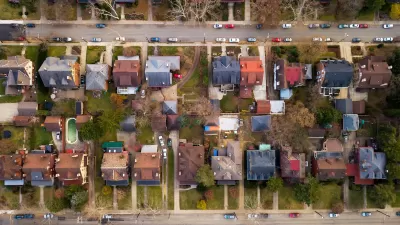Governor Newsom's new budget proposes incentives for developers to build housing in existing urban areas away from fire-prone zones to reduce fire risk and add to the state's insufficient housing stock.

A $2-billion package of grants and tax credits proposed in California Governor Newsom's budget would incentivize development in urban cores and steer housing construction away from areas facing high fire risks. The governor called it an effort to move development away from the "urban-wildland interface" where communities are routinely affected by California's increasingly destructive fires.
According to an article by Hannah Wiley, "The proposal would build on the $10.3 billion state officials allotted last year to bolster mixed- and low-income housing in California, but marks an evolution in the governor’s approach to solving the state’s multimillion-unit shortage" by specifically supporting infill housing projects in already developed areas.
The governor's top housing advisor said of the proposal "better for equity, it’s better for inclusion, it’s better for the environment." The Governor hopes the new language will encourage transit-oriented development and ease the cost and administrative burden of development on underused urban land and state-owned land that could be used for affordable housing, as well as reduce the cost of adaptive reuse that converts buildings to residential use.
The plan would reduce the encroachment of residential development into fire-prone areas and ease pressures on the state's mounting housing crisis by providing more incentives for dense, transit-oriented, affordable housing development.
FULL STORY: Newsom’s latest housing fix: More Californians living downtown

Maui's Vacation Rental Debate Turns Ugly
Verbal attacks, misinformation campaigns and fistfights plague a high-stakes debate to convert thousands of vacation rentals into long-term housing.

Planetizen Federal Action Tracker
A weekly monitor of how Trump’s orders and actions are impacting planners and planning in America.

In Urban Planning, AI Prompting Could be the New Design Thinking
Creativity has long been key to great urban design. What if we see AI as our new creative partner?

Chicago’s Ghost Rails
Just beneath the surface of the modern city lie the remnants of its expansive early 20th-century streetcar system.

Baker Creek Pavilion: Blending Nature and Architecture in Knoxville
Knoxville’s urban wilderness planning initiative unveils the "Baker Creek Pavilion" to increase the city's access to green spaces.

Pedestrian Deaths Drop, Remain Twice as High as in 2009
Fatalities declined by 4 percent in 2024, but the U.S. is still nowhere close to ‘Vision Zero.’
Urban Design for Planners 1: Software Tools
This six-course series explores essential urban design concepts using open source software and equips planners with the tools they need to participate fully in the urban design process.
Planning for Universal Design
Learn the tools for implementing Universal Design in planning regulations.
planning NEXT
Appalachian Highlands Housing Partners
Mpact (founded as Rail~Volution)
City of Camden Redevelopment Agency
City of Astoria
City of Portland
City of Laramie





























